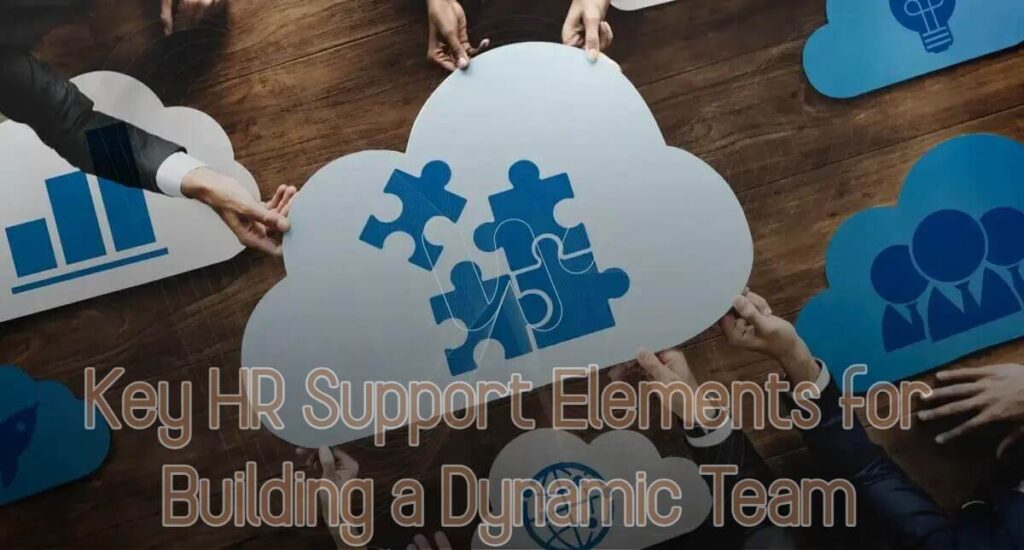Key HR Support Elements for Building a Dynamic Team

Key Takeaways
- Effective HR support in recruitment, onboarding, and employee development is essential for building cohesive, high-performing teams aligned with organizational goals.
- Comprehensive performance management systems and employee well-being initiatives nurture a culture of continuous improvement, accountability, and overall employee satisfaction.
- Leveraging technology in HR processes enhances efficiency, streamlines operations, and provides valuable insights to support long-term team success and organizational growth.
Introduction to HR Support for Teams
Creating a dynamic team requires more than simply assembling skilled individuals. It involves a strategic approach to various types of human resources support that ensures each team member’s skills and goals are aligned with the organization’s vision. Human Resources (HR) plays a fundamental role in nurturing synergy within teams, ensuring each member can effectively contribute to broader organizational success. Without proper HR support, even the most talented teams may struggle to maintain cohesion and productivity.
The role of HR in team building is multifaceted, encompassing everything from recruitment and onboarding to compliance and employee well-being. Each of these elements is designed to enhance team efficiency and create an environment where innovation and collaboration can thrive. By understanding and implementing these HR support elements, organizations can establish a strong foundation for long-term success.
Recruitment Strategies for Success
Recruiting the right talent is the cornerstone of creating a high-performing team. Effective recruitment strategies go beyond traditional methods and involve crafting detailed job descriptions that clearly outline the key responsibilities and attributes needed for success in a role. Utilizing diverse recruitment channels, such as online job boards, social media platforms, and recruitment agencies, ensures a wide and diverse pool of candidates. Finding applicants who will flourish in the company requires conducting in-depth interviews that emphasize not only technical proficiency but also cultural fit and team chemistry.
The importance of recruitment is reflected in the team’s overall performance and morale. Organizations may lower turnover rates and create flexible, resilient teams that are ready to take advantage of opportunities and overcome obstacles by making strategic recruitment investments.
Comprehensive Onboarding Process
One crucial stage that establishes the foundation for new hires’ long-term success in a company is the onboarding procedure. A well-structured onboarding program includes orientation sessions that introduce new employees to the company culture, its values, and its mission. Additionally, assigning mentors provides newcomers with guidance and support as they navigate their new environment, fostering engagement and retention from the outset.
Regular feedback mechanisms during the onboarding phase ensure that new employees feel valued and supported as they acclimate to their roles. This comprehensive approach helps employees integrate more quickly and productively into the team, reducing the time it takes for them to reach their full potential and start contributing significantly to the organization’s goals.
Fostering Employee Development
Training and Skill Enhancement
One of HR’s primary responsibilities is to facilitate continuous employee growth through training and development programs. Offering opportunities for skill enhancement not only keeps team members competitive but also demonstrates the organization’s commitment to their career progression and well-being. Implementing such programs can significantly improve morale and job satisfaction.
According to an SHRM study, companies that prioritize employee development experience higher retention rates and more engaged workforces. Organizations enable workers to take charge of their own development by offering opportunities for both professional and personal improvement, which stimulates creativity and productivity.
Performance Management Systems
Performance management systems are crucial for maintaining high standards and aligning individual contributions with organizational goals. These systems are designed to go beyond traditional annual reviews, focusing instead on continuous feedback, goal setting, and personal development plans tailored to each employee’s strengths and areas for improvement.
Effective performance management fosters a culture of transparency and accountability, where employees clearly understand their objectives and expectations. This alignment helps guide employees toward achieving personal aspirations and company targets, contributing to a cohesive and purpose-driven work environment.
Ensuring Employee Well-Being
Employee well-being programs are integral to maintaining a motivated and healthy workforce. Organizations can implement a variety of wellness initiatives, such as mental health resources, gym memberships, and stress management workshops. These programs not only enhance employees’ physical and mental health but also cultivate a supportive and caring workplace culture.
A Harvard Health study outlines the substantial benefits of workplace wellness programs, including reduced healthcare costs and lower absenteeism. By prioritizing employee well-being, organizations can ensure their teams are both physically and mentally prepared to deliver peak performance.
Maintaining Compliance and Fair Policies
HR departments play a critical role in ensuring compliance with labor laws and maintaining fair workplace policies. This involves creating clear and transparent guidelines, establishing systems for addressing grievances, and upholding ethical standards across all operations. By promoting a culture of fairness and compliance, organizations protect themselves from legal risks and build trust with their employees.
Ensuring that policies are consistently applied and communicated effectively within the organization fosters an environment of mutual respect and collaboration. This kind of culture is essential for retaining top talent and maintaining a positive internal and external reputation.
Role of Technology in HR Support
The rapid advancement of technology is significantly reshaping HR functions, providing innovative solutions for streamlining processes and enhancing efficiency. Modern HR teams can benefit from AI-driven recruitment tools that quickly identify top candidates and digital training platforms that offer accessible and comprehensive educational resources.
By embracing technological advancements, HR departments can effectively support dynamic and evolving teams. This not only helps optimize day-to-day operations but also provides valuable data-driven insights that inform strategic decision-making, driving continued growth and success for the organization.